dsRNA-Detection
Mouse monoclonal Antibody J2 is the gold standard
![]()
The detection of RNA via probes is methodically time-consuming, demanding and for many questions not the optimal method.
The formation of double-stranded (ds)RNA is an essential feature of some viral infections and also plays a role in gene silencing.
Consequently, in 1990, 3 antibodies were developed that specifically recognize dsRNA and are suitable for a variety of research questions. These were characterized in detail in the publication by Schönborn et al (1991). Clone J2 has since become the gold standard with over 200 publications.
It was originally used to study plant viruses, but since the pivotal work of Weber et al. in 2006, in which J2 was used to show that all positive-strand RNA viruses tested produced dsRNA in infected cells, this antibody has been used to answer a variety of questions and for various methods.
For example, the antibody is suitable for the characterization & detection of viruses with dsRNA genomes or intermediates such as SARS, hepatitis C, or various flavivars such as dengue (DENV)-West Nile virus (WNV) and Zika virus, or generally as a diagnostic tool for the identification of unknown pathogens of viral origin as a differential diagnosis to bacterial infections (Richardson et al., 2010). Another application of anti-ds RNA antibodies in the laboratory is quality control of in vitro mRNA transcription assays.
The anti-dsRNA antibody J2 is suitable for a variety of methods such as electron microscopy, immunofluorescence microscopy, immunohistochemistry blot based methods such as dot blot and western blot as well as ELISA. The property of the antibody to bind well to kerosene fixed cells (IHC-P / FFPE) in immunohistochemistry should also be emphasized.
The also developed clones K1 and K2 are an alternative for some questions or are suitable for methods in which 2 antibodies against dsRNA are required:
| anti-dsRNA (Clone J2) |
anti-dsRNA (Clone K1) |
anti-dsRNA (Clone K2) |
|
|---|---|---|---|
| Specificity | dsRNA (40+ bp) |
dsRNA (40+ bp) |
dsRNA (40+ bp) |
| Methods | IHC-P, ELISA, IF, IP, EM, Affinity Purification | IHC-P, ELISA, IF, IP, EM, Affinity Purification | ELISA, IHC, Dot Blot |
| Isotype | Mouse IgG2A / kappa | Mouse IgG2A / kappa | Mouse IgM / kappa |
| Format | purified lyophilized 500µg (1mg/ml) |
purified lyophilized 500µg (1mg/ml) |
Supernatant (10 ml) |
| Recommended Use | Recommended for most applications (Gold standard) |
Poly I:C Detektion , Alternative to J2 in case of crossreactivities | 2. Antibody Sandwich ELISA Alternative AK-Class /Subtype |
| Ordering | NMB-10010500 | NMB-10020500 | NMB-10030010 |
With the acquisition of SCICONS by Nordic-MUbio, the above antibodies are now available at BIOZOL for the first time from the original manufacturer
Selected References:
- Schönborn, J., Oberstrass, J., Breyel, E., Tittgen, J., Schumacher, J. and Lukacs, N. (1991) Monoclonal antibodies to double-stranded RNA as probes of RNA structure in crude nucleic acid extracts. Nucleic Acids Res.19, 2993-3000.
- Lukacs, N. (1994) Detection of virus infection in plants and differentiation between coexisting viruses by monoclonal antibodies to double-stranded RNA. J. Virol. Methods 47, 255-272.
- Lukacs, N. (1997) Detection of sense:antisense duplexes by structurespecific anti-RNA antibodies. In: Antisense Technology. A Practical Approach, C. Lichtenstein and W. Nellen (eds), pp. 281-295. IRL Press, Oxford.
- F. Weber, V. Wagner, S. B. Rasmussen, R. Hartmann, S. R. Paludan. Double-stranded RNA is produced by positive-strand RNA viruses and DNA viruses but not in detectable amounts by negative-strand RNA viruses. J Virol (2006), 80(10):5059-64. doi: 10.1128/JVI.80.10.5059-5064.2006.
- S. Welsch, S. Miller, I. Romero-Brey, A. Merz, C. K. E. Bleck, P. Walther, S. D. Fuller, C. Antony, J. Krijnse-Locker, R. Bartenschlager. Composition and Three-Dimensional Architecture of the Dengue Virus Replication and Assembly Sites. Cell Host & Microbe (2009) 5(4); 365-375. doi.org/10.1016/j.chom.2009.03.007.
- K. Knoops , M. Bárcena, R. W. Limpens, A. J. Koster, A. M. Mommaas, E. J. Snijder. Ultrastructural characterization of arterivirus replication structures: reshaping the endoplasmic reticulum to accommodate viral RNA synthesis. J Virol. (2012) 86(5); 2474-2487. doi:10.1128/JVI.06677-11.
- S. J. Richardson, A. Willcox, D. A. Hilton, S. Tauriainen, H. Hyoty, A. J. Bone, A. K. Foulis, N. G. Morgan. Use of antisera directed against dsRNA to detect viral infections in formalin-fixed paraffin-embedded tissue. J Clin Virol. (2010) 49(3); 180-5. doi: 10.1016/j.jcv.2010.07.015.
- K. Karikó, H. Muramatsu, J. Ludwig, D. Weissman, Generating the optimal mRNA for therapy: HPLC purification eliminates immune activation and improves translation of nucleoside-modified, protein-encoding mRNA, Nucleic Acids Research (2011) 39(21); e142, https://doi.org/10.1093/nar/gkr695.
25.05.2021
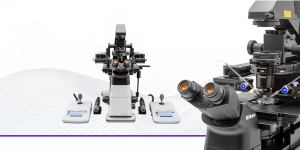
Cell Manipulation
MDR Approval for Medical Devices
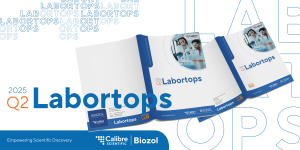
Labortops #2
Super Sale: up to 88% off labware
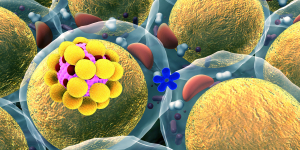
Obesity and Metaboli...
Research Reagents from Rockland, GeneTex and more
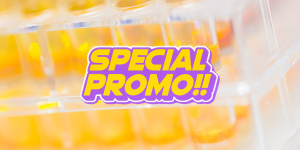
Spring Promo
Up to 30 % off Antibodies and ELISA kits
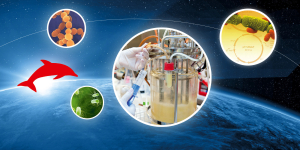
Protein Expression
MoBiTec Cloning and Expression Vectors

